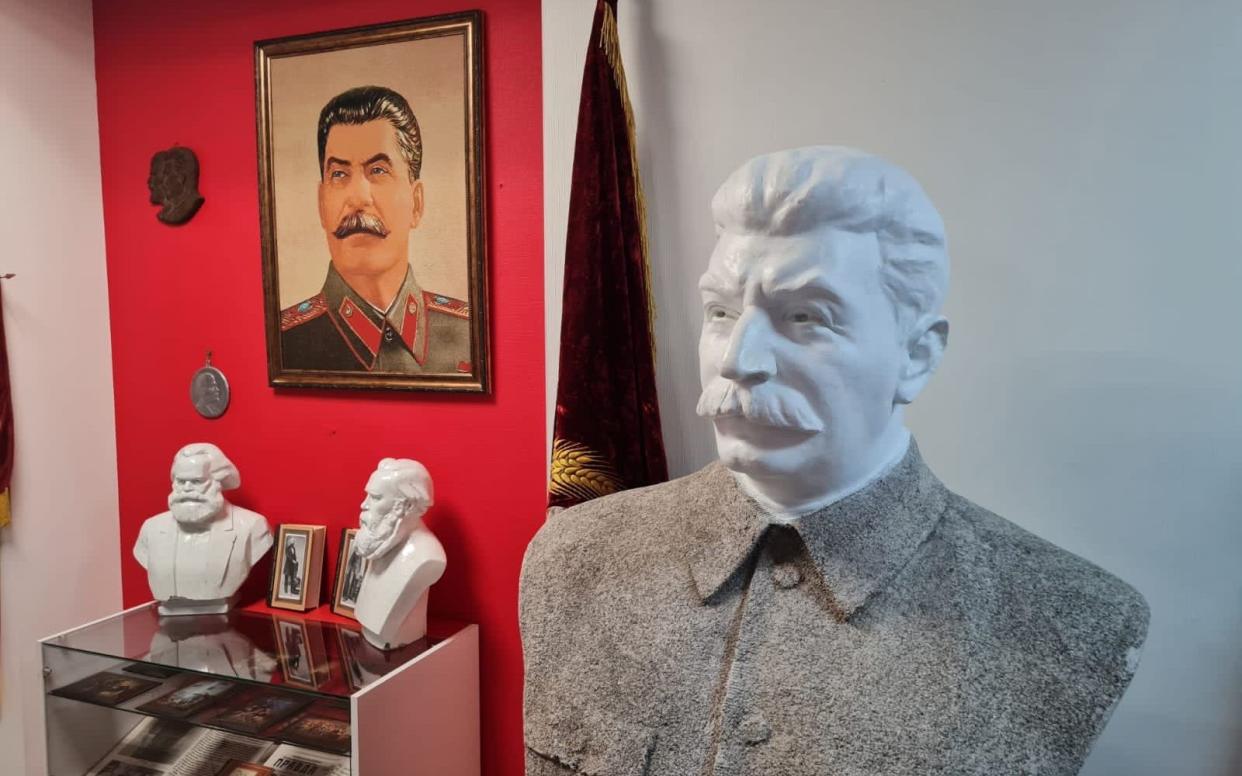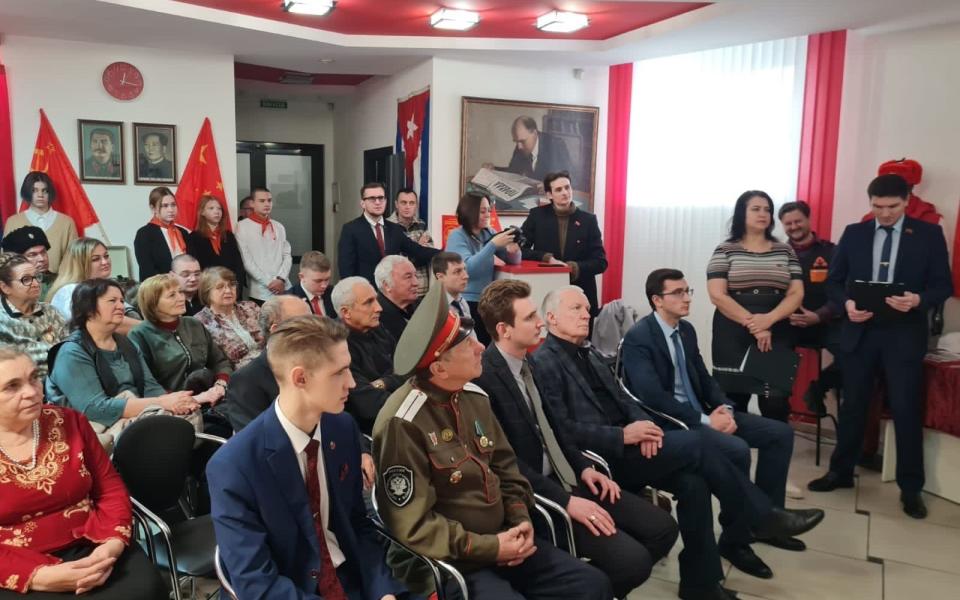Russia builds ‘Stalin centres’ to restore reputation of dictator

- Oops!Something went wrong.Please try again later.
“Stalin centres” are popping up across Russia as Vladimir Putin tries to rehabilitate the reputation of the Soviet dictator.
The centres are being built in Russia’s biggest cities to reposition Joseph Stalin as “a great man of history” and boost support for Putin’s war in Ukraine.
In mid-December, at the opening of Russia’s second Stalin Centre in the city of Barnaul in Altai, Sergei Matasov, the regional Communist Party leader, credited Stalin with modernising the world during his 1924-53 rule over the Soviet Union.
“Stalin’s economy, Stalin’s politics, Stalin’s culture gave the whole world an impetus forward. Such a sharp, qualitative leap,” he said.
The Communist Party, an opposition party that works within parameters set by the Kremlin, opened its first Stalin Centre in 2023, near Nizhny Novgorod. Like the Barnaul project, it aims to inspire visitors with its collection of Stalin photos, speeches, busts and other trinkets.
The Kremlin is welcoming the renewed praise of Stalin.

Analysts said that Putin has always pushed for the glorification of Stalin and his victory over Nazi Germany in the Second World War, which Russians call the Great Patriotic War, but it has never been as important.
“They say that they are fighting Nazis now in Ukraine, the Great Patriotic War 2.0, as it were. So Stalin being the man who defeated Nazism is a good image for the regime,” said Dr Stephen Hall, an associate professor of Russian politics at Bath University.
Putin praised Stalin as a “great man” in a speech to mark Russian nationhood in 2022 and in 2016 Vladimir Medinsky, then the culture minister but now a presidential adviser, travelled to the Tver region, north of Moscow, for the unveiling of a monument to Stalin.
According to an analysis carried out by the Tochka website, of the 110 monuments to Stalin currently in Russia, 37 were erected after Putin became president on New Year’s Eve 1999.
Children are a key target for this pro-Stalin propaganda drive and this year the Kremlin plans to stage a mass gymnastics parade by Russian teenagers through Red Square, the first since Stalin died in 1953.
The Barnaul Stalin Centre also organised an online flash mob of Russian schoolchildren to celebrate Stalin’s birthday in December, posting photographs of them holding handwritten posters which said: “Happy birthday Comrade Stalin!” and “Hello the Great Stalin!”
Pro-Ukraine invasion narrative
Tochka said that since Russia’s invasion of Ukraine in February 2022, around half a dozen Stalin monuments have been erected with each new statue “accompanied by a repetition of Z-propaganda”, a reference to the pro-Ukraine invasion narrative pumped out by the Kremlin.
One erected in Pskov in western Russia was consecrated by a priest, even though religion was banned under Stalin. Another was installed at a private school outside Kazan, central Russia, on a bench.
Historians have estimated that six million people were sent to death camps under Stalin and activists have accused local authorities of ripping off plaques to victims and destroying 22 monuments.
“The campaign to disappear monuments is going on throughout the country, and, in most cases, the perpetrators of vandalism are not caught, and the police are inactive,” said Alexandra Polivanova, a researcher at the Memorial human rights group.
Mr Matasov considers Russians with even a hint of fondness for the West to be traitors.
At the opening of the new Stalin Centre at Barnaul, he said that “supporters of Yeltsin and Navalny, enemies of Russia, foreign agents are writing slander, but we will deal with them the Stalin way”, referencing Boris Yeltsin, Russia’s pro-capitalist president between 1991 and 1999, and Alexei Navalny, Russia’s most high-profile imprisoned opposition leader.

